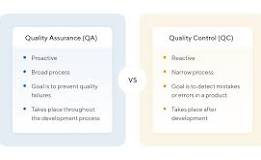The Importance of Software Development Methodology
Software development methodology refers to the process by which software is designed, developed, and maintained. It provides a structured approach to managing the complexities of software projects and ensures that they are completed efficiently and effectively.
Types of Software Development Methodologies
There are several methodologies used in software development, each with its own set of principles and practices. Some common methodologies include:
- Waterfall: A linear approach where each phase of the project is completed before moving on to the next.
- Agile: Emphasizes flexibility and collaboration, with iterative development cycles known as sprints.
- Scrum: A subset of Agile that focuses on small, cross-functional teams working in short cycles.
- Kanban: A visual method for managing work as it moves through various stages of development.
The Benefits of Following a Software Development Methodology
By following a software development methodology, organizations can experience several benefits, including:
- Improved Efficiency: Clear processes help streamline development workflows and reduce inefficiencies.
- Better Communication: Defined roles and responsibilities facilitate effective communication among team members.
- Risk Mitigation: Methodologies help identify and address potential risks early in the project lifecycle.
- Quality Assurance: Structured approaches ensure that software meets quality standards and user requirements.
Selecting the Right Methodology
The choice of software development methodology depends on various factors such as project scope, timeline, team size, and customer requirements. It is essential for organizations to evaluate their needs carefully before selecting a methodology that best suits their project goals.
In Conclusion
A well-defined software development methodology is crucial for the success of any software project. By adopting a structured approach to development, organizations can improve efficiency, enhance collaboration, mitigate risks, and deliver high-quality software products that meet user expectations.
Understanding Software Development Methodologies: FAQs on Types, Selection, Benefits, and Key Differences
- What is software development methodology?
- What are the different types of software development methodologies?
- How do I choose the right software development methodology for my project?
- What are the key benefits of following a software development methodology?
- Can you explain the differences between Agile, Scrum, and Kanban methodologies?
What is software development methodology?
Software development methodology refers to the systematic approach and set of practices used in the development, deployment, and maintenance of software applications. It outlines the processes, tools, and techniques that guide software development teams in managing projects efficiently and effectively. By defining roles, responsibilities, and workflows, software development methodologies help ensure that projects are completed on time, within budget, and meet quality standards. Different methodologies such as Agile, Waterfall, Scrum, and Kanban offer unique frameworks for organizing tasks, fostering collaboration among team members, and adapting to changing requirements throughout the development lifecycle. Understanding software development methodology is essential for organizations seeking to optimize their software development processes and deliver successful projects.
What are the different types of software development methodologies?
When it comes to software development methodologies, there are several different types that organizations can choose from based on their project requirements and goals. Some common software development methodologies include Waterfall, Agile, Scrum, and Kanban. The Waterfall methodology follows a linear approach where each phase of the project is completed before moving on to the next. Agile methodologies, such as Scrum and Kanban, emphasize flexibility and collaboration through iterative development cycles and visual management of work stages. Understanding the characteristics of each methodology is crucial for organizations to select the most suitable approach that aligns with their project scope, team dynamics, and customer needs.
How do I choose the right software development methodology for my project?
When faced with the question of how to choose the right software development methodology for a project, it is essential to consider several key factors. Understanding the project’s scope, timeline, complexity, team size, and customer requirements is crucial in making an informed decision. Evaluating whether a more structured approach like Waterfall or a more flexible method like Agile aligns better with the project goals is important. Additionally, considering the level of collaboration needed among team members, the ability to adapt to changing requirements, and the overall project management style can help in selecting a methodology that best fits the unique needs of the project. By carefully assessing these factors and seeking input from stakeholders, organizations can make an informed choice that sets their software development project up for success.
What are the key benefits of following a software development methodology?
Understanding the key benefits of following a software development methodology is crucial for successful project execution. By adhering to a structured approach, organizations can experience improved efficiency, enhanced communication among team members, better risk mitigation strategies, and higher quality assurance standards. These methodologies provide a framework for streamlining development workflows, clarifying roles and responsibilities, identifying and addressing potential risks early on, and ensuring that the final software product meets both quality standards and user requirements. Ultimately, embracing a software development methodology can lead to more successful projects and satisfied stakeholders.
Can you explain the differences between Agile, Scrum, and Kanban methodologies?
When discussing software development methodologies, it is common to inquire about the distinctions among Agile, Scrum, and Kanban. Agile is a broader approach that emphasizes adaptability, collaboration, and iterative development. Scrum is a specific framework within Agile that focuses on small, self-organized teams working in short cycles called sprints. On the other hand, Kanban is a visual method that emphasizes continuous delivery by managing work as it progresses through different stages. While all three methodologies share the goal of improving efficiency and quality in software development, they differ in their specific practices and principles, catering to different project requirements and team dynamics.




